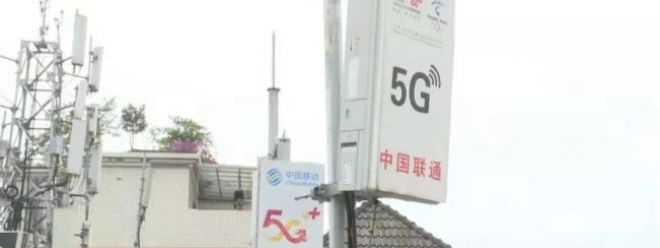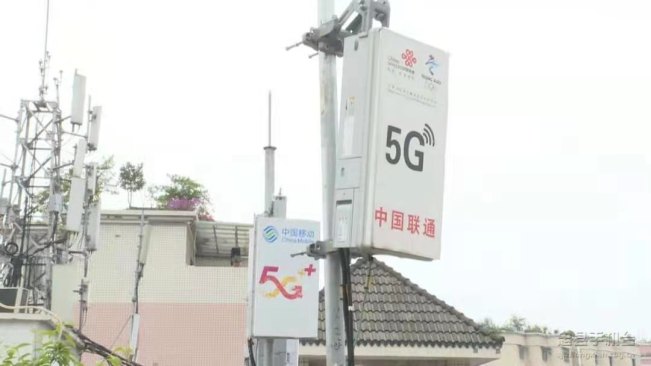The revenue and profits of the three major operators have skyrocketed.

Will employee income rise simultaneously? What to do with employees. The three major operators are all central enterprises, all
under the control of the State-owned Assets Supervision and Administration
Commission of the State Council to implement the "dual control"
policy-that is, control both the number of employees and the total
compensation. Therefore, the condition for achieving a salary increase is to
increase the total salary while maintaining or reducing the number of
employees.
Recently, the three major operators have successively
released their third-quarter performance reports, and the transcripts are very
beautiful——
China Mobile: revenue of 648.6 billion yuan, a year-on-year
increase of 12.9%; net profit of 87.2 billion yuan, a year-on-year increase of
6.9%.
China Unicom: revenue of 244.4 billion yuan, a year-on-year
increase of 8.5%; net profit of 12.9 billion yuan, a year-on-year increase of
19.4%.
China Telecom: revenue of 326.5 billion yuan, a year-on-year
increase of 12.3%; net profit of 23.3 billion yuan, a year-on-year increase of
24.7%.
Looking at the growth rate of China Telecom's revenue and
net profit, who would have thought that this was the performance of a company
that was extremely despised by the capital market?! This is simply the
performance of an Internet star company!

As a result, some employees will start to look forward to
whether our salary levels that have been sluggish for many years can be moved?
Today we will analyze this topic.
First of all, the three major operators are all central
enterprises, all under the control of the State-owned Assets Supervision and
Administration Commission of the State Council to implement the "dual
control" policy-that is, control both the number of employees and the
total compensation. Therefore, the condition for achieving a salary increase is
to increase the total salary while maintaining or reducing the number of
employees.
The total annual employee remuneration and the number of
staff establishments of central enterprises are clearly issued at the beginning
of the year. Under normal circumstances, there will be no change. Use it for
incentives, usually in year-end bonuses or quarterly bonuses.
So this year, China Mobile, China Telecom, and China Unicom
will win additional bonuses from the SASAC by virtue of their outstanding
performance this year? The SASAC assesses whether a central enterprise is
outstanding and does not look at this enterprise or industry in isolation. Put
it in the camp of the entire central enterprise for comparison.
So is the performance of the three major operators today
considered excellent in the central enterprise camp?
We can compare it-
According to data released by the State-owned Assets
Supervision and Administration Commission not long ago, in the first three
quarters of this year, 96 state-owned enterprises achieved a cumulative
operating income of 26.2 trillion yuan, a year-on-year increase of 23.9% and an
increase of 18.3% from the same period in 2019. In terms of net profit, in the
first three quarters, central enterprises achieved a cumulative net profit of
1,512.96 billion yuan, a year-on-year increase of 65.6% and a year-on-year
increase of 43.2%.
In comparison, the revenue of central enterprises increased
by 23.9% year-on-year, China Mobile's revenue increased by 12.9% year-on-year,
China Telecom's 12.3%, and China Unicom's 8.5%, both of which lag far behind
the average level of central enterprises.
Looking at the net profit situation again, the net profit of
central enterprises increased by 65.6% year-on-year, China Mobile's net profit
increased by 6.9% year-on-year, China Telecom was 24.7%, and China Unicom was
19.4%, which also lags far behind the average level of central enterprises.
So, to be honest, among the 96 central enterprises, the
three major operators are really not so good, and their performance is really
hard to get ahead of their peers.
Against this background, I don't think there is any need to
expect the SASAC to add incentive bonuses during the year. Therefore, employees
who hope that their salaries will rise sharply this year can put aside such
thoughts as soon as possible and live down to the ground.
Of course, the group companies of the three major operators
should no longer withhold bonuses this year. After all, good performance does
not fall from the sky. It depends on the bottom employees to come back from one
customer to one customer. It is really unreasonable to intercept bonuses this year.